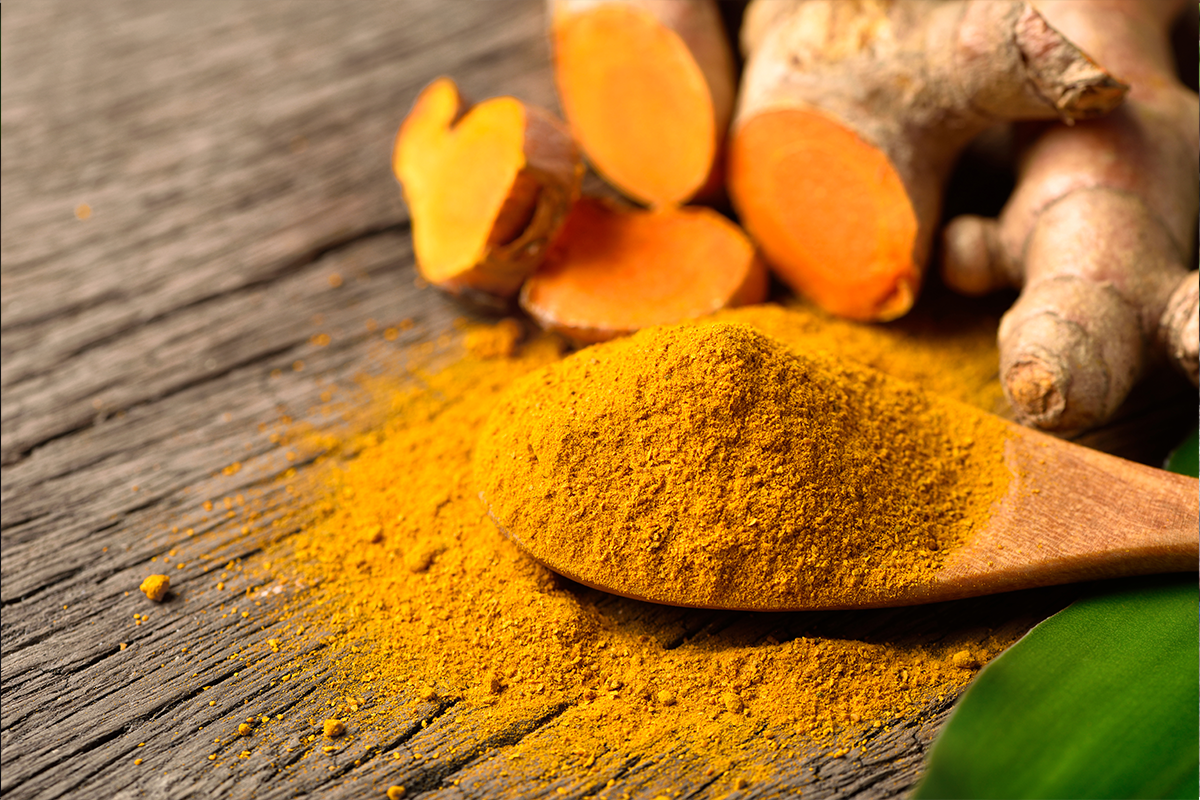Advertisement
Tasty Turmeric
Turmeric is a golden powder that sits patiently on the spice shelf waiting to be used. It seems that its turn never comes. It is not a herb that we often reach for like pepper or oregano, yet, turmeric is a major herb and is comparable to other herbs like garlic in regards to healing … Continued

Turmeric is a golden powder that sits patiently on the spice shelf waiting to be used. It seems that its turn never comes. It is not a herb that we often reach for like pepper or oregano, yet, turmeric is a major herb and is comparable to other herbs like garlic in regards to healing properties. It is also one of the less-expensive herbs – retailing between 10 to 15 dollars per pound in health food stores.
Recent studies indicate that we would benefit from taking turmeric regularly – perhaps daily. Yet, many of us do not use this herb because we do not know what to do with it.
I have two recipes that will make turmeric an irresistible daily treat: Turmeric butter and Turmeric cookies. These have a delicious ginger-like flavour because turmeric and ginger are in the same family. Turmeric can also be added to salad dressings.
Turmeric Studies
Several studies indicate that curcumin (the active ingredient of turmeric) slows the development and growth of some cancer cells. In Japan last year, researchers defined curcumin as a “broad-spectrum anti-cancer agent.” The researchers found that the induction of curcumin’s “detoxifying enzymes” indicate its potential value as a protective agent against toxic chemicals.
According to scientists at the University of Chicago, curcumin inhibits a cancer-provoking bacteria (H. pylori) associated with ulcers and colon cancer. In England, University of Leicester researchers found that curcumin slows the rate at which hormone-responsive prostate cancer cells become resistant to hormonal therapy.
According to scientists at MD Anderson Cancer Center at the University of Texas, curcumin can both prevent and treat cancer. The anti-cancer potential of curcumin comes from its ability to suppress proliferation of a wide variety of tumour cells. In their latest of a series of reports, MD Anderson scientists say that curcumin can suppress tumour initiation, promotion, and metastasis. Studies suggest that curcumin has enormous potential in the prevention and therapy of cancer.
Other labs confirm the activity level of curcumin against hormone-dependent cancers of the breast and prostate. Curcumin inhibits angiogenesis (formation of new blood vessels), which tumours use to nourish themselves as they spread.
Another benefit of turmeric is its action as a powerful COX-2 inhibitor. It is an anti-inflammatory like Aspirin, Vioxx, and Celebrex, but minus the side effects. Instead of being hard on the stomach, it’s good for it! Also, a team from the University of California at Los Angeles believes that turmeric can play a role in preventing and slowing down the effects of Alzheimer’s disease. As a COX-2 inhibitor, turmeric has the same effect as aspirin. Experimentally, turmeric reduced the number of amyloid plaques in the brains of test animals by half.
In addition, turmeric lowers cholesterol, protects the liver, benefits the heart, and is a powerful antioxidant.
Turmeric Butter
Leave butter out of the refrigerator overnight. With a tablespoon, mix with a third as much turmeric powder. Delicious on crackers, toast, and anything else for which you use regular butter.




